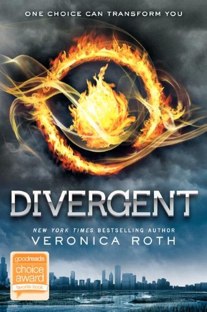Divergent
In YA Dystopian future Chicago, everyone is a member of a faction. There are five factions: Amity, Dauntless, Erudite, Abnegation, or Candor. If you aren’t part of a faction, you are cast out. Parents raise their kids in the manner of their own faction, but sixteen-year olds are free to choose the faction that suits them best. And when Beatrice Prior has to choose, she revolts at the prospect of a lifetime of Abnegation and takes the sudden, dangerous plunge into Dauntless.
One of the book’s problems begins with the lapsed parallelism of the faction names. Dauntless and Erudite are adjectives. Amity, Abnegation, and Candor are nouns. This leads to all sorts of minor awkwardness. The book must have been workshopped many times at Northwestern, where Roth began it as a creative writing student; I can’t understand why everyone didn’t harp on this.
Our rite of passage is immediately followed by an excellent boot camp story as our heroine (and many others) are tested for induction into Dauntless. The effect is heightened by the cultural differences among the recruits, with Abnegation vs. Candor filling the role usually played by the Micks and the Dagos in WWII bootcamp. Plus, in this girl’s army, you can have a crush on your drill instructor.
One detail annoys me. Here, as in The Hunger Games, the protagonist says she is 16 and is obviously younger. The roots of this story lie in Percival, in the mystic journey and the puberty rite. It’s a bat mitzvah, a kina'alda. The world does not lack for sixteen-year old girls: go out and look at a few, and then tell me that girl is Tris Prior. The target audience is YA; they know how their 16-year old friends look, and they know when they’re being lied to.
But these are quibbles. This is not a profound book. It’s not a book of ideas, though in other hands the premise would bear it. It’s a confection, but a delightful one.
